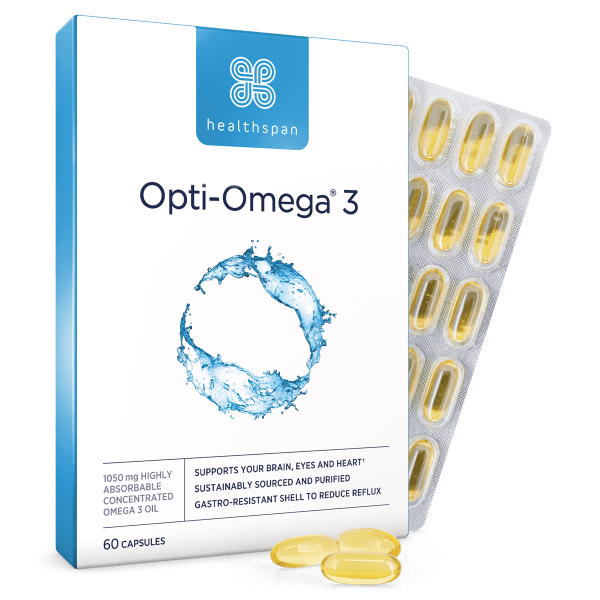Dr Hilary Jones explains what blood pressure is, how it's measured, the potential consequences of high blood pressure and how to lower it.
🕒 5 min read
What is blood pressure?
Blood pressure is simply the pressure exerted on the walls of your arteries as blood flows through them. Traditionally, it has always been measured in terms of millimetres of mercury (or mmHg), previously with an inflatable cuff wrapped around the arm and attached to a column of mercury, but more usually now using a cuff with a digital readout.
High blood pressure is also known as hypertension, and low blood pressure as hypotension.
What do the numbers represent?
During a blood pressure check, two readings are taken. The first and higher reading is the pressure the blood exerts when the heart is pumping. This is the systolic blood pressure. The lower reading is the pressure the blood exerts in between heartbeats. This is the diastolic blood pressure. The difference between these pressures accounts for the pulse wave we can feel at the wrist or neck.
What is a normal blood pressure?
A normal blood pressure is considered to be 120 systolic and 80 diastolic, expressed as 120/80. It tends to be lower in children and young adults and higher in the elderly, which is a reflection of the elasticity of the arteries.
It's important to realise that blood pressure fluctuates not just every day but every hour, depending on what you are doing and your immediate circumstances.
It will be higher when you are exercising or stressed, for example. It will be lower if you jump out of a hot bath or have missed out on meals. This is why no one should ever be diagnosed with high blood pressure from just one reading. Serial readings over time are necessary to demonstrate a sustained elevation of blood pressure that requires treatment.
High blood pressure symptoms
A sustained blood pressure of more than 140/90 Is generally regarded as elevated, and the higher the reading the greater the risk of long-term complications such as heart disease, kidney damage and strokes.
Low blood pressure is relatively rare and is usually seen in young, often very slim, otherwise healthy people who tend to feel faint or dizzy on standing.
Conversely, high blood pressure is usually asymptomatic. Only excessively high blood pressure would cause headaches, blurred vision, nosebleeds, or shortness of breath.
It is a silent condition but one we ignore at our peril.
Getting your blood pressure checked
Hypertension is common. It's estimated that 18% of the adult male and 13% of the adult female population of the UK has high blood pressure – a fact of which millions will be blissfully unaware. High blood pressure is a leading modifiable risk factor for coronary heart disease, strokes, and heart attacks globally.
This is why everyone should be aware of their numbers and everyone over 40 should have at least five yearly checks, and even more frequently if there are known risk factors.
What causes hypertension?
In 90 to 95% of hypertension cases there is no identifiable disease process causing it, but there are certainly several risk factors. These include increasing age (50% of those over 75 have hypertension), poor diet, being overweight, excess alcohol consumption, high salt intake, lack of regular exercise and smoking. People of Afro-Caribbean and South Asian origin (Indian, Pakistani and Bangladeshi) are also at increased risk.
Secondary hypertension can be caused by underlying problems including arterial disease, kidney disorders, hormonal conditions such as Cushing disease, where too much cortisol is produced, and side-effects from both pharmaceutical medicines (the oral contraceptive pill and anti-inflammatories, for example) and recreational drugs.

Untreated high blood pressure can lead to heart attack, heart failure, stroke and vascular dementia, among other problems.
How can you lower elevated blood pressure?
If blood pressure is only marginally elevated, simple lifestyle measures may be all that is required to restore a healthy level. This involves regular exercise (around 30 minutes a day five days a week), limiting alcohol intake to no more than 14 units a week, reducing fat in the diet and limiting salt intake to no more than 6g per day.
Normalising weight, cutting back on caffeine and dealing with unresolved stress with exercise such as yoga and meditation will all help.
In secondary hypertension any underlying cause may need to be treated, but whatever the cause of hypertension, where the blood pressure remains elevated above 140/90 investigations are warranted and treatment with anti-hypertensives should be considered.
These would typically include medicines known as ACE inhibitors, calcium channel blockers, or thiazide diuretics.
Supplements for blood pressure
Magnesium
Among its other helpful properties, magnesium is known to increase the production of nitric oxide in the body, which has a significant relaxation effect on blood vessels. As blood vessels relax and dilate, blood pressure drops. Several randomised controlled trials have shown this mineral to not only reduce existing blood pressure, but to prevent high blood pressure occurring in the first place.
Another mineral, potassium, increases the excretion of sodium salt via the kidneys, so swapping ordinary table salt for potassium is a good idea.
Garlic and omega 3
A review of other medical studies has shown that garlic supplementation can reduce hypertension by an average of 8.3mm Hg systolic and 5.5mm Hg diastolic respectively, figures indicating a positive preventative effect on heart disease.
Omega 3 polyunsaturated fatty acids reduce blood lipids and inflammation as well as blood pressure, and have a preventative long-term effect.

Opti-Omega® 3
Premium optimal absorption fish oil
- Highest levels of omega 3 fish oils
- Triglyceride form of omega 3, better absorbed by the body
- Proven benefits to your brain, eye and heart health
Other ways to help
Beetroot has been shown to help lower blood pressure due to its nitrate content, and supplementation with Coenzyme Q10 and Vitamin D may provide additional benefits.
As always, it is advisable to check with your doctor before self-treating for hypertension, and bear in mind that too little supplementation may be ineffective, while too much may be potentially harmful.
A manageable condition
Hypertension should only be diagnosed after a number of readings showing a sustained high blood pressure over a period of time. Basic tests can rule out any underlying causes and, in many cases, simple lifestyle changes and supplements can remedy the situation and prevent long-term complications.
Where hypertension remains despite such changes, there are several different medications that can control the condition and keep you in rude good health long into your later years.








